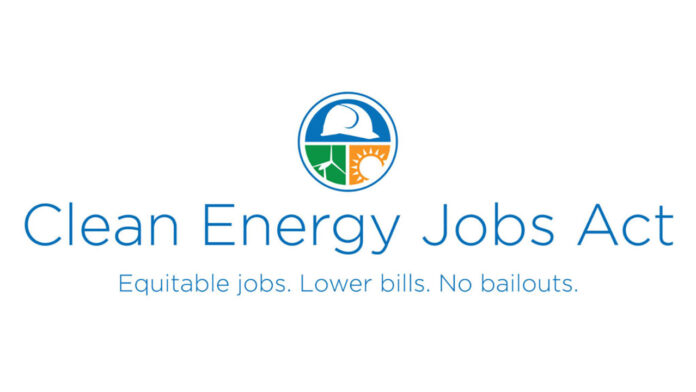
We have been critical of many of Illinois’ legislative policies which negatively impact business and industry, particularly when compared to Iowa’s pro-growth legislative record.
There is, however, one Illinois policy which stands out compared to Iowa. In September 2021, Illinois lawmakers passed a watershed clean energy law: The Climate & Equitable Jobs Act, which established the state as a leader for its efforts to decarbonize.
One of the key provisions in the bill was a commitment to keep its existing nuclear power fleet online.
Illinois is the leading state in the U.S. for nuclear power production. In Illinois, there are 11 operating commercial nuclear power reactors at six sites, generating about 50% of the state’s electricity. (They include Constellation’s pair of reactors at its Quad Cities Generating Station in Cordova, Illinois.)
This important piece of legislation doesn’t get the recognition it should because it won’t be fully realized because ratepayers (i.e., energy users) won’t experience a significant loss of baseload energy due to the closure of those Illinois nuclear power plants.
This thoughtful legislation preserved Illinois’ nuclear fleet for the long term; something that Iowa leaders failed to do.
Iowa’s only nuclear power plant, the Duane Arnold Energy Center, was left to go offline in 2020 because the state failed to incentivize the primary owner, NextEra Energy, to preserve it.
Normally, we don’t advocate for government intervention with business and industry, but states have been meddling with energy incentives for decades. Additionally, the long-term health of a state’s electrical generation capabilities along with climate change warranted the states’ help to save the nuclear power generation stations. Then there are hundreds of well-paying jobs and the considerable economic impact they have for regions.
The shortsightedness of not saving Duane Arnold might not be felt this year or next year, but its loss will be felt at some point in the future.
It is immensely cheaper and quicker to preserve and improve an existing nuclear plant or fleet of plants than it is to build a new nuclear plant from scratch due to regulatory burdens.
Consider that, for the first time in decades, a new nuclear power plant from scratch came online this summer in Georgia, but the cost of the new plant could discourage utilities from pursuing new nuclear facilities as a path to a carbon-free future.
According to the Associated Press, Georgia Power Co. announced earlier this summer that Unit 3 at Plant Vogtle, southeast of Augusta, has completed testing and is now in commercial operation, seven years late and $17 billion over budget.
At its full output of 1,100 megawatts of electricity, Unit 3 can power 500,000 homes and businesses.
Minnesota is also working to preserve its nuclear plants. The Minnesota Public Utilities Commission voted last month unanimously to allow Xcel Energy to store additional spent nuclear fuel at the 571-MW Monticello Nuclear Generating Plant, clearing the way for operations to continue through at least 2040 and keep nuclear energy as a key component to that state’s electrical generation portfolio.
What those state leaders have done is a wonderful accomplishment because it preserves its nuclear fleet and its clean baseload energy. Iowa will be sorry that it failed to do something similar.




